Today I got up at three a.m. to work on the essay that I started on December 12. It got shorter and tighter. I'd hoped to finish it, but I think I need to put it away and let the thoughts simmer a bit and see if anything happens to help me give it more power.
Yesterday was our youngest son's 25th birthday.
Wednesday, December 31, 2008
Tuesday, December 30, 2008
The Curious Case of Benjamin Button
Warning: Possible spoilers.
I watched The Curious Case of Benjamin Button yesterday afternoon. Afterwards, I went within myself, thought about the film, dreamed about it, and, when I woke up early this morning, thought on it some more. The more I thought about it, the more complicated my thoughts got. I wanted to write some thoughts down before I got to the point of giving up trying.
It's a very good movie. Brad Pitt, who is one of my favorite actors anyway, gives a beautiful performance. All the acting is first-rate. It is a fairytale for modern times, so it draws on rich archetypes and themes.
Having just taught a course on fairy tales and modern culture at the university, I couldn't help but notice a Beauty and the Beast theme in The Curious Case of Benjamin Button.
I thought a lot this morning about the baby boomers and how our films have followed our generation's maturation and development. We've had our Cinderella tales (Saturday Night Fever, Pretty Woman), our Little Red Riding Hood tales (Thelma and Louise, Company of Wolves, Michael Jackson's Thriller), and also our Beauty and the Beast tales, like The Elephant Man. We've considered various beasts, such as physical disfigurement, mental illness, AIDS, race, authority (Cuckoo's Nest, Cool Hand Luke). Even Disney's Beauty and the Beast looks slant at hyper-masculinity and fear of homosexuality. (The music for the animated feature was written by a gay man who later died of AIDS.)
The baby boomers have considered every aspect of growing up, but The Curious Case of Benjamin Button gives boomers a curious outlet for its fear of aging and death. In The Curious Case of Benjamin Button, Brad Pitt plays Benjamin, who represents the repellent beast of old age.
Benjamin, who is born old and becomes younger as the years go on, is seen as beastly by his own father, who abandons him. From a psychological point of view, we might say the father fears his own aging and death and therefore sees his son as "monstrous." Normal children see Benjamin as strange, too, as well as women in the brothel where Benjamin loses his virginity to one sympathetic prostitute.
Benjamin grows up in a sort of old folks home, where for the most part he fits right in and learns the lessons life's impermanence. He meets Daisy when, as a little child, she visits her grandmother who lives there. Daisy sees Benjamin's beauty like no other person can--even her grandmother views him as monstrous when she catches the two children baring their souls before a burning candle in a secret place under a table.
Old age is a beast, yet in The Curious Case of Benjamin Button, it is depicted as both idyllic and horrifying. In the old folks home where Benjamin grows up, there is no suffering, really, just mild indignities, usually experienced by the men (one aged man goes outside naked to raise the American flag; another man repeats again and again that he was stuck by lightening seven times). But for the most part, the old people are not in pain. The women die quietly, sometimes wearing pearls. Death is a visitor, not a horrible spectre.
Daisy's death as an old woman, though, is modern and terrible. She is in a hospital connected to tubes and her physical body is in agony. The film effectively taps into our worst nightmare. Her death happens just as Hurricane Katrina, itself a figure of death and devastation, makes landfall.
The Curious Case of Benjamin Button is based on a short story by F. Scott Fitzgerald. Fitzgerald's story begins in 1860. It is situated in the old Confederacy. However, the film begins on the day that WWI ends. This is the day that Benjamin is born. Thus he experiences the apex of his youth during the 1960s, an appropriate time setting for baby boomers.
I think that those of us who have followed Brad Pitt's career and who have loved him will feel a bit of sadness at seeing him aged. It gives you a jolt. We remember him best from Thelma and Louise, where he played a sexually charged Trickster figure. We also remember him as Achilles, the beautiful god with the fatally flawed heel who, mercifully, dies in his prime rather than suffering the debilitation of old age.
It's rather difficult to accept that Pitt is not immortal. And, furthermore, if he can age, so can we.
But The Curious Case of Benjamin Button shows us that reverse aging is no picnic, either. You still experience loss of loved ones, bodily functions, memory. You still die.
What the film says is that it is essentially how one lives that matters. Dance while you can; play the piano with your whole heart. If you aren't happy with the way your life is going, make it new: it is within your power to do that. That's not a new message, but the film finds a way to make fresh old truths. That is what art is for!
This is only a rough sketch of my ideas.
I watched The Curious Case of Benjamin Button yesterday afternoon. Afterwards, I went within myself, thought about the film, dreamed about it, and, when I woke up early this morning, thought on it some more. The more I thought about it, the more complicated my thoughts got. I wanted to write some thoughts down before I got to the point of giving up trying.
It's a very good movie. Brad Pitt, who is one of my favorite actors anyway, gives a beautiful performance. All the acting is first-rate. It is a fairytale for modern times, so it draws on rich archetypes and themes.
Having just taught a course on fairy tales and modern culture at the university, I couldn't help but notice a Beauty and the Beast theme in The Curious Case of Benjamin Button.
I thought a lot this morning about the baby boomers and how our films have followed our generation's maturation and development. We've had our Cinderella tales (Saturday Night Fever, Pretty Woman), our Little Red Riding Hood tales (Thelma and Louise, Company of Wolves, Michael Jackson's Thriller), and also our Beauty and the Beast tales, like The Elephant Man. We've considered various beasts, such as physical disfigurement, mental illness, AIDS, race, authority (Cuckoo's Nest, Cool Hand Luke). Even Disney's Beauty and the Beast looks slant at hyper-masculinity and fear of homosexuality. (The music for the animated feature was written by a gay man who later died of AIDS.)
The baby boomers have considered every aspect of growing up, but The Curious Case of Benjamin Button gives boomers a curious outlet for its fear of aging and death. In The Curious Case of Benjamin Button, Brad Pitt plays Benjamin, who represents the repellent beast of old age.
Benjamin, who is born old and becomes younger as the years go on, is seen as beastly by his own father, who abandons him. From a psychological point of view, we might say the father fears his own aging and death and therefore sees his son as "monstrous." Normal children see Benjamin as strange, too, as well as women in the brothel where Benjamin loses his virginity to one sympathetic prostitute.
Benjamin grows up in a sort of old folks home, where for the most part he fits right in and learns the lessons life's impermanence. He meets Daisy when, as a little child, she visits her grandmother who lives there. Daisy sees Benjamin's beauty like no other person can--even her grandmother views him as monstrous when she catches the two children baring their souls before a burning candle in a secret place under a table.
Old age is a beast, yet in The Curious Case of Benjamin Button, it is depicted as both idyllic and horrifying. In the old folks home where Benjamin grows up, there is no suffering, really, just mild indignities, usually experienced by the men (one aged man goes outside naked to raise the American flag; another man repeats again and again that he was stuck by lightening seven times). But for the most part, the old people are not in pain. The women die quietly, sometimes wearing pearls. Death is a visitor, not a horrible spectre.
Daisy's death as an old woman, though, is modern and terrible. She is in a hospital connected to tubes and her physical body is in agony. The film effectively taps into our worst nightmare. Her death happens just as Hurricane Katrina, itself a figure of death and devastation, makes landfall.
The Curious Case of Benjamin Button is based on a short story by F. Scott Fitzgerald. Fitzgerald's story begins in 1860. It is situated in the old Confederacy. However, the film begins on the day that WWI ends. This is the day that Benjamin is born. Thus he experiences the apex of his youth during the 1960s, an appropriate time setting for baby boomers.
I think that those of us who have followed Brad Pitt's career and who have loved him will feel a bit of sadness at seeing him aged. It gives you a jolt. We remember him best from Thelma and Louise, where he played a sexually charged Trickster figure. We also remember him as Achilles, the beautiful god with the fatally flawed heel who, mercifully, dies in his prime rather than suffering the debilitation of old age.
It's rather difficult to accept that Pitt is not immortal. And, furthermore, if he can age, so can we.
But The Curious Case of Benjamin Button shows us that reverse aging is no picnic, either. You still experience loss of loved ones, bodily functions, memory. You still die.
What the film says is that it is essentially how one lives that matters. Dance while you can; play the piano with your whole heart. If you aren't happy with the way your life is going, make it new: it is within your power to do that. That's not a new message, but the film finds a way to make fresh old truths. That is what art is for!
This is only a rough sketch of my ideas.
Sunday, December 28, 2008
Saturday, December 27, 2008
Wednesday, December 24, 2008
The Circus Animals' Desertion IV
 "The Circus Animals' Desertion IV"
"The Circus Animals' Desertion IV"This is the last in my series of pictures depicting Yeats's "The Circus Animals' Desertion." This photo illustrates the last lines:
I must lie down where all ladders start
In the foul rag and bone shop of the heart.
I chose to depict a death-in-life scene, showing the broken refuse of human dreams next to signs of new life. The poor chariot has flat tires, the circus animals are ghost-like, and the snakes devour the eggs, but many eggs do continue, and those hatch new birds. Snakes in my pictures are never bad: they are symbols of regeneration.
Yeats says that his "masterful" images of the past "grew in pure mind" but they began out of:
a mound of refuse or the sweepings of a street,
Old kettles, old bottles, and a broken can,
Old iron, old bones, old rags, that raving slut
Who keeps the till...
Our best work comes not from glorious themes but from that which the mind has discarded as unimportant. That is where the imagination resides, in the heart where broken images are waiting for us to make them into new art.
Tuesday, December 23, 2008
The Circus Animals' Desertion III
 "The Circus Animals' Desertion III"
"The Circus Animals' Desertion III"In stanzas 2-4, Yeats tells us that he can do little but "enumerate old themes." In stanza 4, he says of what he has written:
It was the dream itself enchanted me:
character isolated by deed.
To engross the present and dominate memory.
Players and painted stage took all my love,
And not those things they were emblems of.
In my drawing, each character is isolated by a deed: walking on stilts, tug of war, balancing on a pig, training a dog to jump through a hoop. My little goat is watching with amusement from behind the curtain.
Monday, December 22, 2008
The Circus Animals' Desertion II
 "The Circus Animals' Desertion II"
"The Circus Animals' Desertion II"In the first stanza of "The Circus Animals' Desertion," Yeats writes:
I sought a theme and sought for it in vain
I sought it daily for six weeks or so.
Maybe at last, being but a broken man,
I must be satisfied with my heart, although
Winter and summer till old age began
My circus animals were all on show
...that burnished chariot,
Lion and woman and the lord knows what.
Yeats looks back on his former poems with an element of regret. He seems to think that, like a circus, his early work was all for show. Yeats wants to find a way back to the true heart of his work.
My little drawing is of the chariot, the lion, and the woman, as well as a few circus animals. The clownish goat is my favorite, so I will probably put him in every picture I draw in this series.
~~~~~~~~~~~~~~~~~~~~~~~~~~~~~~~~
On another note: it has been so cold today. Last night, high winds shook the icy trees. All night ice shards were hurled against the house. The dogs were very upset by all the wild noise. I've never seen weather exactly like this before. It has just been a bitter, bitter night and day.
At around 7 a.m. our electricity went out and stayed off all day. It wasn't restored until almost 7 p.m. We heat with wood, so we were fairly warm, although the temperatures continued to drop through the day until it was below zero. The wind sucked the warmth out of this old house and before we knew it our pipes were starting to freeze in the bathrooms. This is not a problem we usually have. We caught the problem just in time.
Sunday, December 21, 2008
The Circus Animals' Desertion
 "The Circus Animals' Desertion"
"The Circus Animals' Desertion"I wanted to do a simple drawing today with ink and colored pencils. I love folk art, and I wanted to do a drawing in that style. Doing folk art lets you be creative in such a pure and childlike way.
I based the images on a poem by Yeats called "The Circus Animals' Desertion." It is about the awful moment when inspiration deserts us, when we fear our creative life is dead. In the first stanza he writes:
I sought a theme and sought for it in vain,
I sought it daily for six weeks or so.
In this picture, the animals represent the imagination. The people have chained a bear to a tree. The horse, which is symbolic of primal energy, has been tamed and is in service to humans. The goat and the unicorn are escaping into the sky, not only an open sky, but the night sky, a place of dreams.
Some people do not notice the animals' escape; others look into the sky and gesture to the animals longingly. The man on the horse tries to stop the animals by using force. I think each person in the picture says something about how we deal with the loss of our creative power. I remember what John Trudell said in the documentary about him: Our power comes from our relationship to life.
I may do a whole series of these and base them on different lines from Yeats's poem. I had such a good time doing this.
Saturday, December 20, 2008
Wednesday, December 17, 2008
Haiku #98
Outside--
Dog prints in the snow!
How lucky.
Dog prints in the snow!
How lucky.
Labels:
Haiku,
Our Dog Buddha,
Our Dog Sweet Pea,
Snow
Tuesday, December 16, 2008
Making Christmas #2
Saturday, December 13, 2008
Friday, December 12, 2008
Essay
Today I have been working on an essay about a topic that is important to me. It has been a long time since I have written an essay--or should I say, finished one. I want to finish this one. My problem is keeping the topic tamed down; it always wants to run away from me in all directions.
This article exorcized a few of my demons:
Op-Ed Guest Columnist
Typing Without a Clue
By TIMOTHY EGAN
The unlicensed pipe fitter known as Joe the Plumber is out with a book this month, just as the last seconds on his 15 minutes are slipping away. I have a question for Joe: Do you want me to fix your leaky toilet?
I didn’t think so. And I don’t want you writing books. Not when too many good novelists remain unpublished. Not when too many extraordinary histories remain unread. Not when too many riveting memoirs are kicked back at authors after 10 years of toil. Not when voices in Iran, North Korea or China struggle to get past a censor’s gate.
Joe, a k a Samuel J. Wurzelbacher, was no good as a citizen, having failed to pay his full share of taxes, no good as a plumber, not being fully credentialed, and not even any good as a faux American icon. Who could forget poor John McCain at his most befuddled, calling out for his working-class surrogate on a day when Joe stiffed him.
With a résumé full of failure, he now thinks he can join the profession of Mark Twain, George Orwell and Joan Didion.
Next up may be Sarah Palin, who is said to be worth nearly $7 million if she can place her thoughts between covers. Publishers: with all the grim news of layoffs and staff cuts at the venerable houses of American letters, can we set some ground rules for these hard times? Anyone who abuses the English language on such a regular basis should not be paid to put words in print.
Here’s Palin’s response, after Matt Lauer asked her when she knew the election was lost:
“I had great faith that, you know, perhaps when that voter entered that voting booth and closed that curtain that what would kick in for them was, perhaps, a bold step that would have to be taken in casting a vote for us, but having to put a lot of faith in that commitment we tried to articulate that we were the true change agent that would progress this nation.”
I have no idea what she said in that thicket of words.
Most of the writers I know work every day, in obscurity and close to poverty, trying to say one thing well and true. Day in, day out, they labor to find their voice, to learn their trade, to understand nuance and pace. And then, facing a sea of rejections, they hear about something like Barbara Bush’s dog getting a book deal.
Writing is hard, even for the best wordsmiths. Ernest Hemingway said the most frightening thing he ever encountered was “a blank sheet of paper.” And Winston Churchill called the act of writing a book “a horrible, exhaustive struggle, like a long bout of painful illness.”
When I heard J.T.P. had a book, I thought of that Chris Farley skit from “Saturday Night Live.” He’s a motivational counselor, trying to keep some slacker youths from living in a van down by the river, just like him. One kid tells him he wants to write.
“La-di-frickin’-da!” Farley says. “We got ourselves a writer here!”
If Joe really wants to write, he should keep his day job and spend his evenings reading Rick Reilly’s sports columns, Peggy Noonan’s speeches, or Jess Walter’s fiction. He should open Dostoevsky or Norman Maclean — for osmosis, if nothing else. He should study Frank McCourt on teaching or Annie Dillard on writing.
The idea that someone who stumbled into a sound bite can be published, and charge $24.95 for said words, makes so many real writers think the world is unfair.
Our next president is a writer, which may do something to elevate standards in the book industry. The last time a true writer occupied the White House was a hundred years ago, with Teddy Roosevelt, who wrote 13 books before his 40th birthday.
Barack Obama’s first book, the memoir of a mixed-race man, is terrific. Outside of a few speeches, he will probably not write anything memorable until he’s out of office, but I look forward to that presidential memoir.
For the others — you friends of celebrities penning cookbooks, you train wrecks just out of rehab, you politicians with an agent but no talent — stop soaking up precious advance money.
I know: publishers say they print garbage so that real literature, which seldom makes any money, can find its way into print. True, to a point. But some of them print garbage so they can buy more garbage.
There was a time when I wanted to be like Sting, the singer, belting out, “Roxanne ...” I guess that’s why we have karaoke, for fantasy night. If only there was such a thing for failed plumbers, politicians or celebrities who think they can write.
Maureen Dowd is off today.
Op-Ed Guest Columnist
Typing Without a Clue
By TIMOTHY EGAN
The unlicensed pipe fitter known as Joe the Plumber is out with a book this month, just as the last seconds on his 15 minutes are slipping away. I have a question for Joe: Do you want me to fix your leaky toilet?
I didn’t think so. And I don’t want you writing books. Not when too many good novelists remain unpublished. Not when too many extraordinary histories remain unread. Not when too many riveting memoirs are kicked back at authors after 10 years of toil. Not when voices in Iran, North Korea or China struggle to get past a censor’s gate.
Joe, a k a Samuel J. Wurzelbacher, was no good as a citizen, having failed to pay his full share of taxes, no good as a plumber, not being fully credentialed, and not even any good as a faux American icon. Who could forget poor John McCain at his most befuddled, calling out for his working-class surrogate on a day when Joe stiffed him.
With a résumé full of failure, he now thinks he can join the profession of Mark Twain, George Orwell and Joan Didion.
Next up may be Sarah Palin, who is said to be worth nearly $7 million if she can place her thoughts between covers. Publishers: with all the grim news of layoffs and staff cuts at the venerable houses of American letters, can we set some ground rules for these hard times? Anyone who abuses the English language on such a regular basis should not be paid to put words in print.
Here’s Palin’s response, after Matt Lauer asked her when she knew the election was lost:
“I had great faith that, you know, perhaps when that voter entered that voting booth and closed that curtain that what would kick in for them was, perhaps, a bold step that would have to be taken in casting a vote for us, but having to put a lot of faith in that commitment we tried to articulate that we were the true change agent that would progress this nation.”
I have no idea what she said in that thicket of words.
Most of the writers I know work every day, in obscurity and close to poverty, trying to say one thing well and true. Day in, day out, they labor to find their voice, to learn their trade, to understand nuance and pace. And then, facing a sea of rejections, they hear about something like Barbara Bush’s dog getting a book deal.
Writing is hard, even for the best wordsmiths. Ernest Hemingway said the most frightening thing he ever encountered was “a blank sheet of paper.” And Winston Churchill called the act of writing a book “a horrible, exhaustive struggle, like a long bout of painful illness.”
When I heard J.T.P. had a book, I thought of that Chris Farley skit from “Saturday Night Live.” He’s a motivational counselor, trying to keep some slacker youths from living in a van down by the river, just like him. One kid tells him he wants to write.
“La-di-frickin’-da!” Farley says. “We got ourselves a writer here!”
If Joe really wants to write, he should keep his day job and spend his evenings reading Rick Reilly’s sports columns, Peggy Noonan’s speeches, or Jess Walter’s fiction. He should open Dostoevsky or Norman Maclean — for osmosis, if nothing else. He should study Frank McCourt on teaching or Annie Dillard on writing.
The idea that someone who stumbled into a sound bite can be published, and charge $24.95 for said words, makes so many real writers think the world is unfair.
Our next president is a writer, which may do something to elevate standards in the book industry. The last time a true writer occupied the White House was a hundred years ago, with Teddy Roosevelt, who wrote 13 books before his 40th birthday.
Barack Obama’s first book, the memoir of a mixed-race man, is terrific. Outside of a few speeches, he will probably not write anything memorable until he’s out of office, but I look forward to that presidential memoir.
For the others — you friends of celebrities penning cookbooks, you train wrecks just out of rehab, you politicians with an agent but no talent — stop soaking up precious advance money.
I know: publishers say they print garbage so that real literature, which seldom makes any money, can find its way into print. True, to a point. But some of them print garbage so they can buy more garbage.
There was a time when I wanted to be like Sting, the singer, belting out, “Roxanne ...” I guess that’s why we have karaoke, for fantasy night. If only there was such a thing for failed plumbers, politicians or celebrities who think they can write.
Maureen Dowd is off today.
Thursday, December 11, 2008
Monday, December 08, 2008
Sunday, December 07, 2008
Running with the Wolves
I had a dream last night about feeling the fullness of my creative power. It all came about as a result of having:
1. a good writing session before going to sleep
I had my laptop in front of the fire, and I was working on Chapter One of the novel. I had a clear breakthough as how I wanted this chapter to be written. It is quite different from what I had, and now the new writing is much more exciting in terms of language and depth of characterization. I entered that state where the magic happens.
2. recently discussed "Beauty and the Beast" with my students
We had discussed how "Beauty and the Beast" is about confronting our attitudes about what constitutes Beauty and Beastliness. I am a big fan of what Angela Carter did with her rewrites of fairy tales. She often allowed the wildness of animals and beasts to be manifested in women as sexual and creative energy.
3. stepped across a stack of books with Women Who Run With the Wolves on top.
~~~~~~~~~~~~~~~~~~~~~~~~~~~~~~~
The dream was about traveling. Allen and I stopped at a beautiful hotel to stay the night. The only room available for us was in a mansion far away from the main hotel. The mansion was cluttered and part of the curtains had been torn down. I think this means that my thoughts about how to organize the novel are still disorganized but that the curtains have been ripped away, exposing the light that I need to find my way. The curtains were fancy, perhaps representing the socially acceptable "barrier" I have erected between myself and the good part of my creativity.
To get to the room, we had to walk a wild path. Then for some reason I was walking alone on the path. Soon I noticed two huge, vicious wolves ahead of me. They were snarling and growling at me.
Then I did something I don't usually do in dreams (I am usually frightened and run from danger). I snarled and growled back, and the wolves retreated and let me pass.
1. a good writing session before going to sleep
I had my laptop in front of the fire, and I was working on Chapter One of the novel. I had a clear breakthough as how I wanted this chapter to be written. It is quite different from what I had, and now the new writing is much more exciting in terms of language and depth of characterization. I entered that state where the magic happens.
2. recently discussed "Beauty and the Beast" with my students
We had discussed how "Beauty and the Beast" is about confronting our attitudes about what constitutes Beauty and Beastliness. I am a big fan of what Angela Carter did with her rewrites of fairy tales. She often allowed the wildness of animals and beasts to be manifested in women as sexual and creative energy.
3. stepped across a stack of books with Women Who Run With the Wolves on top.
~~~~~~~~~~~~~~~~~~~~~~~~~~~~~~~
The dream was about traveling. Allen and I stopped at a beautiful hotel to stay the night. The only room available for us was in a mansion far away from the main hotel. The mansion was cluttered and part of the curtains had been torn down. I think this means that my thoughts about how to organize the novel are still disorganized but that the curtains have been ripped away, exposing the light that I need to find my way. The curtains were fancy, perhaps representing the socially acceptable "barrier" I have erected between myself and the good part of my creativity.
To get to the room, we had to walk a wild path. Then for some reason I was walking alone on the path. Soon I noticed two huge, vicious wolves ahead of me. They were snarling and growling at me.
Then I did something I don't usually do in dreams (I am usually frightened and run from danger). I snarled and growled back, and the wolves retreated and let me pass.
Labels:
Beauty and the Beast,
dreams,
fairy tales,
Writing
Wednesday, December 03, 2008
Monday, December 01, 2008
Poem
Back then I realized
everything was in him:
the nervous ants I had played with as a child,
the sad birds I had found and buried,
new landscapes,
sermons that sang to me.
Back then he dreamed the world
and I was in his dream.
everything was in him:
the nervous ants I had played with as a child,
the sad birds I had found and buried,
new landscapes,
sermons that sang to me.
Back then he dreamed the world
and I was in his dream.
Subscribe to:
Comments (Atom)
Pages
Dreaming
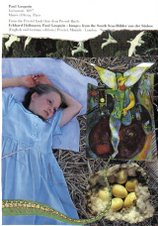
About Me

- Theresa Williams
- Northwest Ohio, United States
- "I was no better than dust, yet you cannot replace me. . . Take the soft dust in your hand--does it stir: does it sing? Has it lips and a heart? Does it open its eyes to the sun? Does it run, does it dream, does it burn with a secret, or tremble In terror of death? Or ache with tremendous decisions?. . ." --Conrad Aiken
Followers
Facebook Badge
Search This Blog
Favorite Lines
My Website
Epistle, by Archibald MacLeish
Visit my Channel at YouTube
Great Artists
www.flickr.com
This is a Flickr badge showing public photos from theresarrt7. Make your own badge here.
Fave Painting: Eden
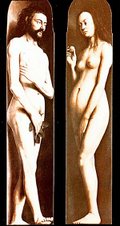
Fave Painting: The Three Ages of Man and Death

by Albrecht Dürer
From the First Chapter
The Secret of Hurricanes : That article in the Waterville Scout said it was Shake- spearean, all that fatalism that guides the Kennedys' lives. The likelihood of untimely death. Recently, another one died in his prime, John-John in an airplane. Not long before that, Bobby's boy. While playing football at high speeds on snow skis. Those Kennedys take some crazy chances. I prefer my own easy ways. Which isn't to say my life hasn't been Shake-spearean. By the time I was sixteen, my life was like the darkened stage at the end of Hamlet or Macbeth. All littered with corpses and treachery.
My Original Artwork: Triptych
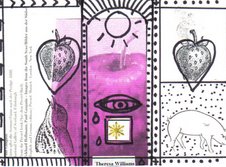
Wishing
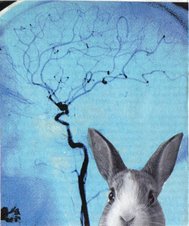
Little Deer
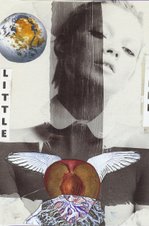
Transformation
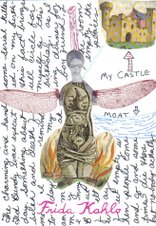
Looking Forward, Looking Back
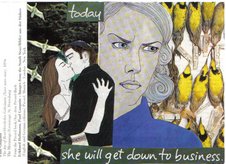
Blog Archive
-
▼
2008
(259)
-
▼
December
(34)
- Essay II
- The Curious Case of Benjamin Button
- Haiku #104
- Haiku #103
- Haiku #102
- Haiku #101
- The Circus Animals' Desertion IV
- The Circus Animals' Desertion III
- The Circus Animals' Desertion II
- The Circus Animals' Desertion
- Making Christmas #3
- Haiku #100
- Haiku #99
- Haiku #98
- Making Christmas #2
- Haiku #97
- Making Christmas #1
- Essay
- This article exorcized a few of my demons:Op-Ed Gu...
- Haiku #96
- Haiku #95
- Haiku #94
- Haiku #93
- Haiku #92
- Haiku #91
- Haiku #90
- Haiku #89
- Running with the Wolves
- Haiku #88
- Haiku #87
- Haiku #86
- Poem
- Haiku #85
- Haiku #84
-
▼
December
(34)
CURRENT MOON
Labels
- adolescence (1)
- Airstream (7)
- Alain de Botton (1)
- all nighters (2)
- Allen (1)
- altars (1)
- Angelus Silesius (2)
- animals (1)
- Annie Dillard (1)
- Antonio Machado (2)
- AOL Redux (1)
- April Fool (1)
- Archibald MacLeish (1)
- arts and crafts (55)
- Auden (1)
- awards (2)
- AWP (2)
- Bach (1)
- Basho (5)
- Beauty and the Beast (1)
- birthdays (1)
- blogs (5)
- boats (2)
- body (2)
- books (7)
- bookstores (1)
- Buddha (1)
- Buddha's Little Instruction Book (2)
- butterfly (4)
- buzzard (2)
- Capote (4)
- Carmel (1)
- Carson McCullers (1)
- cats (15)
- Charles Bukowski (1)
- Charles Simic (2)
- Christina Georgina Rossetti (1)
- church (2)
- confession (1)
- Conrad Aiken (1)
- cooking (5)
- crows (1)
- current events (2)
- D. H. Lawrence (3)
- death (6)
- Delmore Schwartz (4)
- detachment (1)
- dogs (7)
- domestic (3)
- dreams (21)
- Edward Munch (4)
- Edward Thomas (1)
- Eliot (3)
- Eliot's Waste Land (2)
- Emerson (2)
- Emily Dickinson (10)
- ephemera (1)
- Esalen (6)
- essay (3)
- Eugene O'Neill (3)
- Ezra Pound (1)
- F. Scott Fitzgerald (1)
- fairy tales (7)
- Fall (16)
- Famous Quotes (16)
- festivals (2)
- fire (5)
- Floreta (1)
- food (1)
- found notes etc. (1)
- found poem (2)
- fragments (86)
- Frida Kahlo (1)
- frogs-toads (4)
- Georg Trakl (1)
- gifts (1)
- Global Warming (1)
- Gluck (1)
- goats (1)
- Goodwill (1)
- Great lines of poetry (2)
- Haibun (15)
- haibun moleskine journal 2010 (2)
- Haiku (390)
- Hamlet (1)
- Hart Crane (4)
- Hayden Carruth (1)
- Henry Miller (1)
- holiday (12)
- Hyman Sobiloff (1)
- Icarus (1)
- ikkyu (5)
- Imagination (7)
- Ingmar Bergman (1)
- insect (2)
- inspiration (1)
- Issa (5)
- iTunes (1)
- Jack Kerouac (1)
- James Agee (2)
- James Dickey (5)
- James Wright (6)
- John Berryman (3)
- Joseph Campbell Meditation (2)
- journaling (1)
- Jung (1)
- Juniper Tree (1)
- Kafka (1)
- Lao Tzu (1)
- letters (1)
- light (1)
- Lorca (1)
- Lorine Niedecker (2)
- love (3)
- Lucille Clifton (1)
- Marco Polo Quarterly (1)
- Marianne Moore (1)
- Modern Poetry (14)
- moon (6)
- movies (20)
- Muriel Stuart (1)
- muse (3)
- music (8)
- Mystic (1)
- mythology (6)
- nature (3)
- New Yorker (2)
- Nietzsche (1)
- Northfork (2)
- November 12 (1)
- October (6)
- original artwork (21)
- original poem (53)
- Our Dog Buddha (6)
- Our Dog Sweet Pea (7)
- Our Yard (6)
- PAD 2009 (29)
- pad 2010 (30)
- Persephone (1)
- personal story (1)
- philosophy (1)
- Phoku (2)
- photographs (15)
- Picasso (2)
- Pilgrim at Tinker Creek (1)
- Pillow Book (5)
- Pinsky (2)
- plays (1)
- poem (11)
- poet-seeker (9)
- poet-seer (6)
- poetry (55)
- politics (1)
- poppies (2)
- presentations (1)
- Provincetown (51)
- Publications (new and forthcoming) (13)
- rain (4)
- Randall Jarrell (1)
- reading (6)
- recipes (1)
- Reciprocity (1)
- Richard Brautigan (3)
- Richard Wilbur (2)
- Rilke (5)
- river (5)
- river novel (1)
- rivers (12)
- Robert Frost (2)
- Robert Rauschenberg (1)
- Robert Sean Leonard (1)
- Robinson Jeffers (1)
- Rollo May (2)
- Rumi (1)
- Ryokan (1)
- Sexton (1)
- short stories (13)
- skeletons (2)
- sleet (1)
- snake (1)
- Snow (24)
- solitude (1)
- spider (2)
- spring (1)
- Stanley Kunitz (1)
- students (2)
- suffering (4)
- suicide (2)
- summer (20)
- Sylvia Plath (2)
- Talking Writing (1)
- Tao (3)
- teaching (32)
- television (4)
- the artist (2)
- The Bridge (3)
- The Letter Project (4)
- The Shining (1)
- Thelma and Louise (1)
- Theodore Roethke (16)
- Thomas Gospel (1)
- Thomas Hardy (1)
- toys (3)
- Transcendentalism (1)
- Trickster (2)
- Trudell (1)
- Ursula LeGuin (1)
- vacation (10)
- Vermont (6)
- Virginia Woolf (1)
- Vonnegut (2)
- Wallace Stevens (1)
- Walt Whitman (8)
- weather (7)
- website (3)
- what I'm reading (2)
- William Blake (2)
- William Butler Yeats (5)
- wind (3)
- wine (2)
- winter (24)
- wood (3)
- Writing (111)
- Zen (1)







